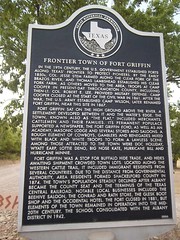

John Henry Holliday
(1851-1887)
gambler, gun-fighter, and dentist
Died aged c. 36
Wikidata WikipediaJohn Henry Holliday (August 14, 1851 – November 8, 1887), better known as Doc Holliday, was an American gambler, gunfighter, and dentist. A close friend and associate of lawman Wyatt Earp, Holliday is best known for his role in the events leading up to and following the Gunfight at the O.K. Corral in Tombstone, Arizona. He developed a reputation as having killed more than a dozen men in various altercations, but modern researchers have concluded that, contrary to popular myth-making, Holliday killed only one to three men. Holliday's colorful life and character have been depicted in many books and portrayed by well-known actors in numerous movies and television series. At age 21, Holliday earned a degree in dentistry from the Pennsylvania College of Dental Surgery. He set up practice in Griffin, Georgia, but he was soon diagnosed with tuberculosis, the same disease that had claimed his mother when he was 15, having acquired it while tending to her needs while she was still in the contagious phase of the illness. Hoping the climate in the American Southwest would ease his symptoms, he moved to that region and became a gambler, a reputable profession in Arizona in that day. Over the next few years, he reportedly had several confrontations. He saved Wyatt Earp, a famous lawman and gambler, while in Texas. Afterwards they became friends. In 1879, he joined Earp in Las Vegas, New Mexico, and then rode with him to Prescott, Arizona, and then Tombstone. While in Tombstone, local members of the outlaw Cochise County Cowboys repeatedly threatened him and spread rumors that he had robbed a stagecoach. On October 26, 1881, Holliday was deputized by Tombstone city marshal Virgil Earp. The lawmen attempted to disarm five members of the Cowboys near the O.K. Corral on the west side of town, which resulted in the famous shootout. Following the Tombstone shootout, Virgil Earp was maimed by hidden assailants while Morgan Earp was murdered. Unable to obtain justice in the courts, Wyatt Earp took matters into his own hands. As the recently appointed deputy U.S. marshal, Earp formally deputized Holliday, among others. As a federal posse, they pursued the outlaw Cowboys they believed were responsible. They found Frank Stilwell lying in wait as Virgil boarded a train for California and Wyatt Earp killed him. The local sheriff issued a warrant for the arrest of five members of the federal posse, including Holliday. The federal posse killed three other Cowboys during late March and early April 1882, before they rode to the New Mexico Territory. Wyatt Earp learned of an extradition request for Holliday and arranged for Colorado Governor Frederick Walker Pitkin to deny Holliday's extradition. Holliday spent the few remaining years of his life in Colorado. He died of tuberculosis in his bed at the Hotel Glenwood at age 36.
DbPedia
friend of Wyatt Earp
Commemorated on 1 plaque
Texas Historical Marker #13028
Frontier Town of Fort Griffin. In the 19th century, the U.S. government established forts along Texas' frontier to protect pioneers. By the early 1850s, Col. Jesse Stem farmed along the Clear Fork of the Brazos River, and Thomas Lambshead established his Clear Fork Farm. As others moved to the area, troops at Camp Cooper in present-day Throckmorton County, including then-Lt. Col. Robert E. Lee, provided military defense. Camp Cooper closed at the start of the Civil War in 1861. After the war, the U.S. Army established Camp Wilson, later renamed Fort Griffin, near this site in 1867. Fort Griffin sat on the high ground above the river. A settlement developed between it and the water's edge. The town, known also as "The Flat," included merchants, cattlemen and their families. Its permanent populace supported a newspaper, the Fort Griffin Echo, as well as an academy, Masonic lodge and several stores and saloons. A rough element of cowboys, gamblers and renegades mixed with black and white troops to form a lawless scene. Among those attracted to the town were Doc Holliday, Wyatt Earp, Lottie Deno, Big Nose Kate, Hurricane Bill and Hurricane Minnie. Fort Griffin was a stop for buffalo hide trade, and hides awaiting shipment crowded town lots. Located along the Western cattle trail, it included immigrant residents from several countries. Due to the distance from governmental authority, area residents formed Shackelford County in 1874. The town's population steadily declined after Albany became the county seat and the terminus of the Texas Central Railroad. Notable local businesses included the Beehive Saloon, The Conrad and Rath Store, the Glesk Boot Shop and the Occidental Hotel. The fort closed in 1881, but elements of the town remained in operation into the mid-20th century. The school consolidated with the Albany district in 1942. (2004) #13028
US 283, CR 184, Albany, TX, United States where they was
